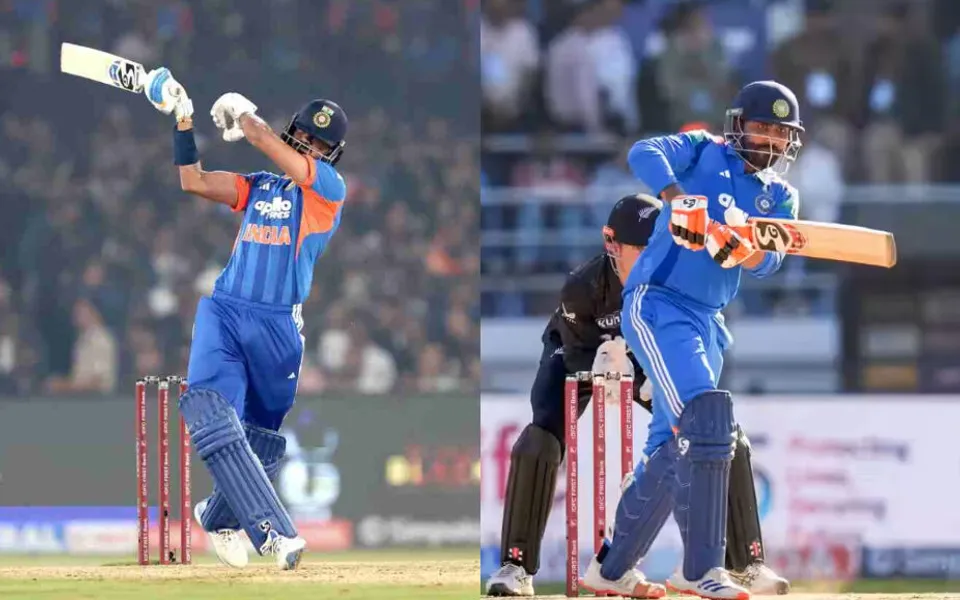There is a deluge of pieces in the Indian media about how the Pakistani cricket captain, Babar Azam, is said to have been “sexting” the girlfriend of another player.
The issue is that it is not true news and that it first appeared in a “joke” tweet sent out by a parody account.
The fact that the media either did not notice or chose to overlook the fact that the Twitter account was not meant to be taken seriously exemplifies how easily false information can become widely believed and spread rapidly across the internet. It also exemplifies the intense animosity that exists between India and Pakistan.
On Twitter, the person who was behind the parody account apologised to Azam, who has stayed mute during this ordeal, and slammed what he called India’s “clown media.” The person who was behind the parody account remains nameless.
The original tweet, which was posted on January 15 by the user known as “Dr. Nimo Yadav,” stated that Babar had been “sexting with the gf (girlfriend) of another Pakistan cricketer.” This tweet has since been deleted.
In addition to that, the athlete was also the “If she keeps exchanging sexually explicit text messages with her boyfriend, you must guarantee that he will not leave the squad. I really hope Allah is keeping an eye on everything “, the account sent out a tweet to its audience of more than 27,000 people.
The tweet contained a supposedly screenshot of Azam with a heart superimposed on it, as well as a video of a man in bed without any clothes on who resembled the famous cricketer.
The owner of the Twitter account stated that he took the photo and video from an Instagram account that has since been deactivated.
Despite the fact that the Twitter handle is labelled as a “Parody account,” the tweet in question has been viewed almost 850 thousand times and has been widely disseminated across the media in India, Pakistan’s most bitter adversary both on and off the cricket field, as well as in other countries.
Even though the owner of the Twitter account demonstrated once more that the post was fabricated when he removed it the following day, reports bearing the phoney claim were still available on at least eight different Indian news websites as of Wednesday.
After the Pakistan Cricket Board tweeted its anger at its “media partner” for reporting on the “unsubstantiated personal charges,” one international sports website removed their piece, even though it had quoted the “verified Twitter account Dr. Nimo Yadav.”
The hashtags #WeStandWithBabar and #StayStrong Babar Azam were trending on Twitter as an expression of support for Babar Azam from users of the internet.
The Twitter profile of the parody account featured a blue checkmark and a message that explained the account was “verified” because its owner had paid for the new Twitter Blue subscription that was introduced by the site’s owner, Elon Musk. The checkmark and message were both posted on the Twitter profile of the parody account.
For an account to be eligible for the blue checkmark on Twitter, the account “must have no signs of being fraudulent or misleading,” as the eligibility requirements state.
“My followers know my tweets, and they knew that it was not in terrible taste, and that it was a joke/satire,” the owner of the parody account told AFP. “They recognised that it was not in bad taste, and that it was a joke/satire.”
In recent years, the population of India, which is currently estimated to be over 1.4 billion, has seen an explosion in the use of the internet as well as the ownership of mobile phones.
Incorrect information has the potential to rapidly spread, which can have devastating and even lethal results.
In the years 2018 and 2019, there was a series of lynchings that were carried out by mobs that were inspired by false rumours of child kidnappings that circulated on WhatsApp. These rumours were spread by WhatsApp users.
According to the International Fact-Checking Network, India boasts the highest number of certified fact-checking organisations of any country in the world; nevertheless, these organisations can only make a small dent in the mountain of fake news that is produced on a daily basis.
Not only has the Hindu nationalist ruling party led by Prime Minister Narendra Modi been accused of failing to combat misinformation, but it has also been accused of disseminating the misinformation itself.
According to Nadim Akhter, a researcher on misinformation at the Indian Institute of Mass Communication, Indian television and online news outlets are “in a hurry” to broadcast or publish “viral or sensational stories especially when they are related to Pakistan, which results in fake news dissemination through their platform.” This has led to the spread of fake news through these platforms.
“Unfortunately, the vast majority of them are not adhering to the fundamental code of behaviour of the newsroom, which is the practise of fact checking.”

![[WATCH] BBL 2025-26: Mumbai-born Jerrssis Wadia strikes twice in first two balls vs Melbourne Renegades 2 [WATCH] BBL 2025-26: Mumbai-born Jerrssis Wadia strikes twice in first two balls vs Melbourne Renegades](https://cricketmood.com/wp-content/uploads/2026/01/1768643562209_FotoJet-2026-01-17T152219.jpg)


![[WATCH] BPL 2025-26: Sahibzada Farhan teases Ruyel Miah with 'you can't see me' gesture, bowler responds with Chahal-like celebration after dismissal 5 [WATCH] BPL 2025-26: Sahibzada Farhan teases Ruyel Miah with 'you can't see me' gesture, bowler responds with Chahal-like celebration after dismissal](https://cricketmood.com/wp-content/uploads/2026/01/1768635339895_FotoJet-2026-01-17T130433.webp)